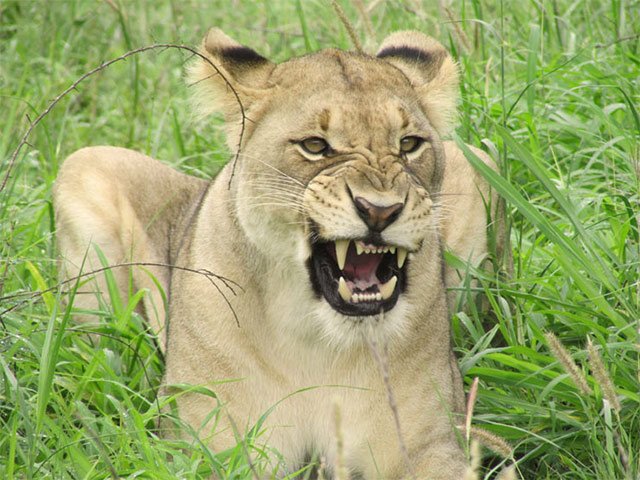SA warned over export of lion skeletons
Updated | By MornéJK
The International wildlife charity, Born Free Foundation, has warned that South Africa's intention to export the skeletons of 800 lions, sourced from captive-bred lions, could threaten wild populations.

According to the foundation, as few as 20,000 lions occupy 8% of their historic range across Africa with populations in West Africa classified as Critically Endangered.
"In 2016, the International Union for the Conservation of Nature estimated that lions had declined by approximately 43% across the continent over the previous 21 years, and scientists predict further devastating declines in the coming decades in the absence of concerted conservation action," the foundation said.
Commenting on the proposed quota of 800 lions, annually, the Born Free Foundation's president, Will Travers said that it seems as if authorities have crumpled in the face of pressure from commercial lion breeders.
"These breeders are only interested in maximising their profits from this despicable practice. In proposing an export quota of 800 skeletons, the authorities have assumed, wrongly in my view, that the trade will have no impact on wild lions, without any evidence to back that up," Travers said.
The foundation believes that the trade will further stimulate demand in Asia for lion bones and perpetuate the demand for tiger bone tonics which often contain lion bone.
"This will, in turn, put already beleaguered wild tigers, as well as lions, at greater risk from poachers seeking a quick profit by laundering bones from wild lions and other big cats into the trade. South Africa’s commercial lion breeding industry is unspeakably cynical and cruel, poses a threat to wild lions and other big cats, and needs to be shut down," the foundation said.
At its World Conservation Congress in September 2016, the International Union for the Conservation of Nature passed a resolution calling for an end to the captive breeding of lions for commercial, non-conservation purposes.
Show's Stories
-
Temu’s got a local warehouse in SA
Temu has just launched its first warehouse in South Africa! Here’s what ...
East Coast Breakfast 19 hours ago -
Green ID book production to be discontinued in SA
The Department of Home Affairs is planning to phase out the green ID boo...
Stacey & J Sbu 22 hours ago